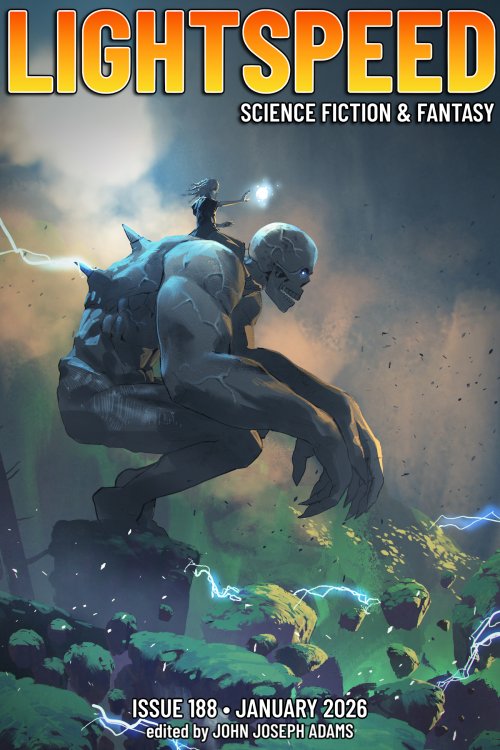Poignant and genre-straddling, “Laika Comes Back Safe” is a heartbreaker of a story. Can you tell us a little about what started it for you? Were there any surprises along the way?
I can’t wait for inspiration or I’ll never write. I tend to sit down and think, “Gotta write something.” A lot of my stories come from smashing a couple of things together and this one was “let’s smash together werewolves and Kentucky.” Because, really, not something I associated with werewolves. I got the idea of Tye confessing that he’s a werewolf and the story went from there.
I have family from rural Kentucky. My mother grew up in a hollow (pronounced “holler”) called Swan Pond. I started the story thinking about growing up there, about the circumstances of family. Nothing in the story is autobiographical except the family cemetery, but it all feels deeply personal.
I get asked a lot if Tye really is a werewolf and my answer is that Tye is Schrödinger’s werewolf. I don’t really want to open the box.
In Canada right now, there’s attention being drawn to mental health crises affecting adolescents, particularly indigenous teens, and yet the situation in 2016 is that too many vulnerable people don’t get to the resources they need to survive. Tye’s story is realistic, and that is tragic. How do you hope to see fiction fitting into this conversation, if at all?
I was pretty depressed as a teen. I didn’t get any help until I was in my early thirties. I’m seeing some evidence that that is changing, but honestly, people in poverty don’t get attention for chronic problems, it doesn’t matter if they’re poor white trash (like part of my family) or First Nations. When I had Hodgkin’s Lymphoma, I was very active in the pursuit of good health, to the point where my oncologist provided me with medical paper abstracts. (He was a great oncologist.) But when I’m mentally ill, part of the problem is my brain doesn’t work right and I can’t really fight for myself. When you’re poor, you make desperate decisions. You tell yourself that that knocking you hear in the car engine isn’t really a problem because you really can’t afford it if it is. You take out payday loans. It’s very hard when things go wrong to believe that they will get better, because you don’t have a lot of evidence that things will get better.
Fiction rarely has much effect on the world (with the exception of something like Uncle Tom’s Cabin, which helped push the US into Civil War.) But fiction can, on an individual basis, give people a chance to experience things they aren’t familiar with. To empathize. I don’t expect my story to have much of a conversation with the world. It’s a very small story in a very big world, and it’s mostly talking to people who already sympathize. But it’s better than silence. It’s an attempt at a truthful depiction of people whether there are werewolves in it or not.
What is next for you, Maureen McHugh?
I’m at work on a novel! I’m about halfway through. No deadline yet, so I can’t say when it will be done.
Enjoyed this article? Consider supporting us via one of the following methods:







